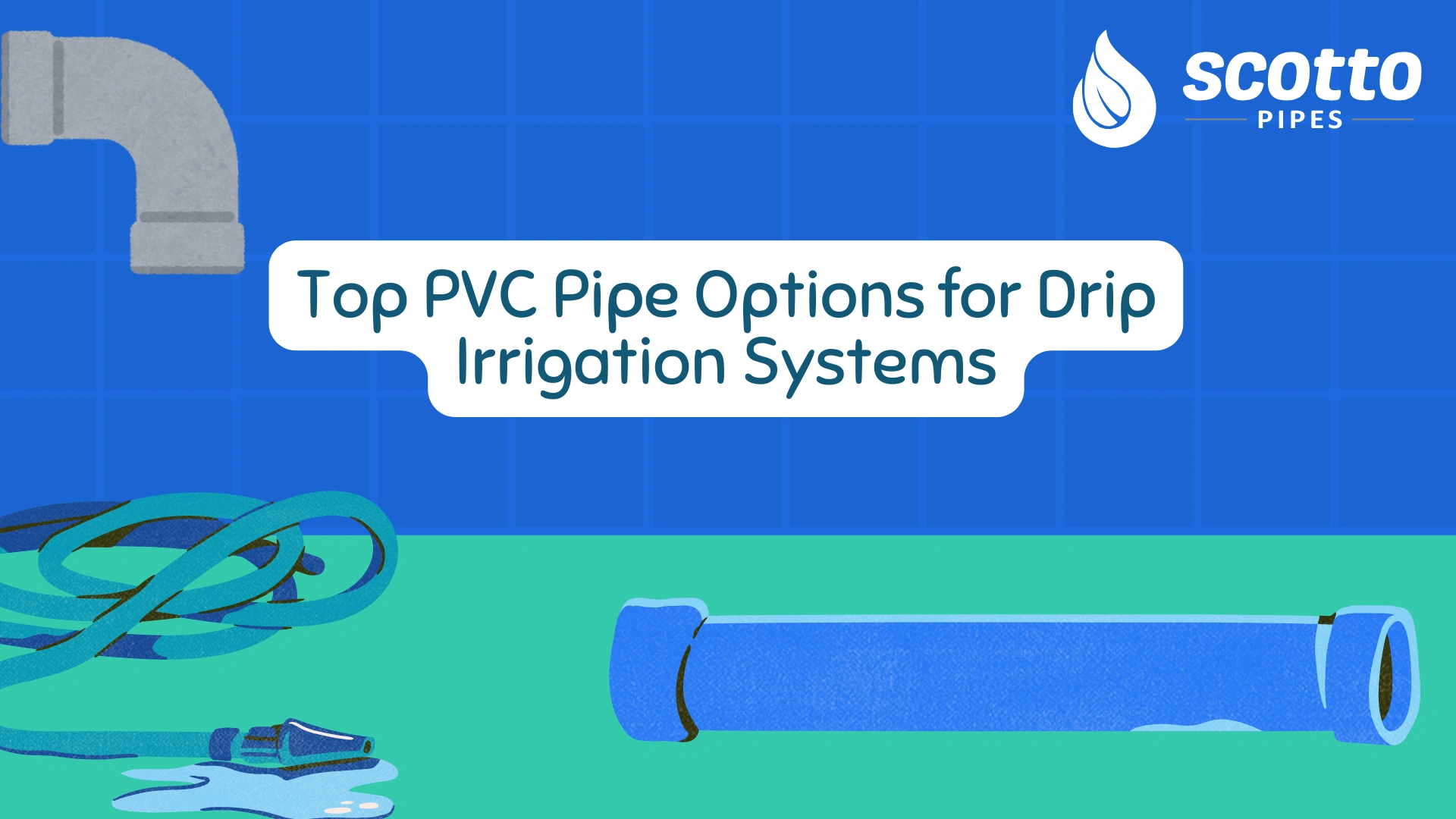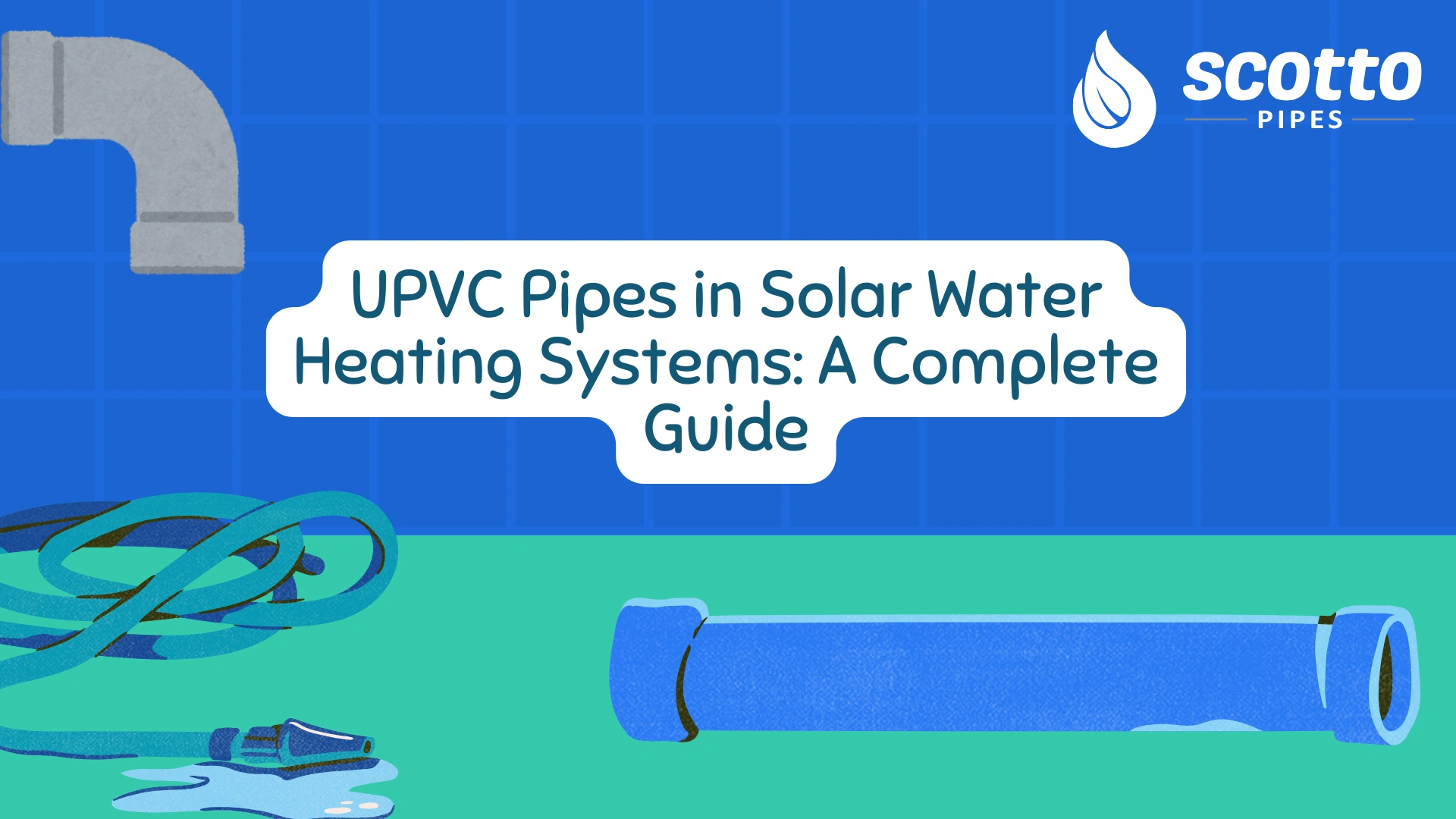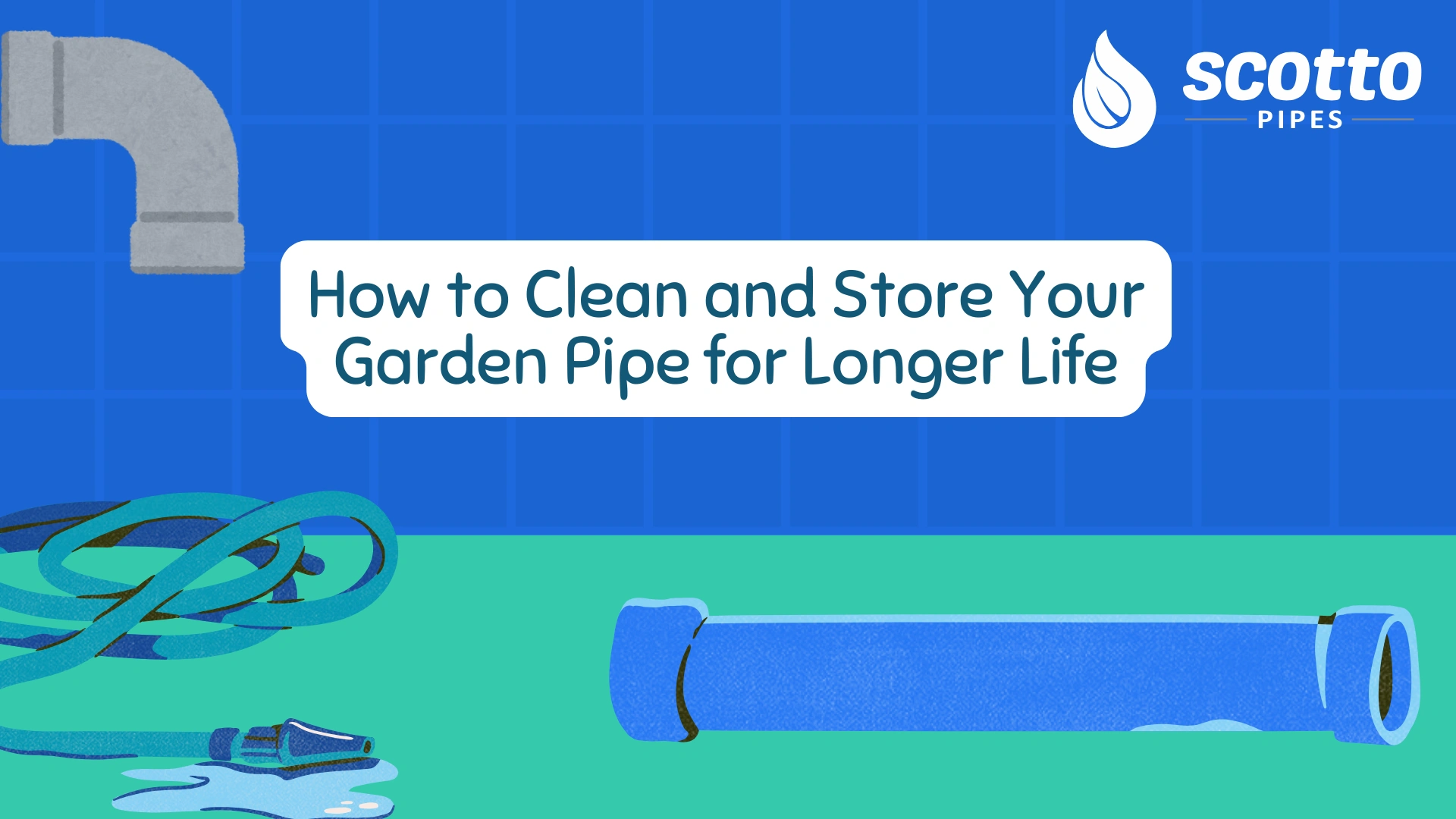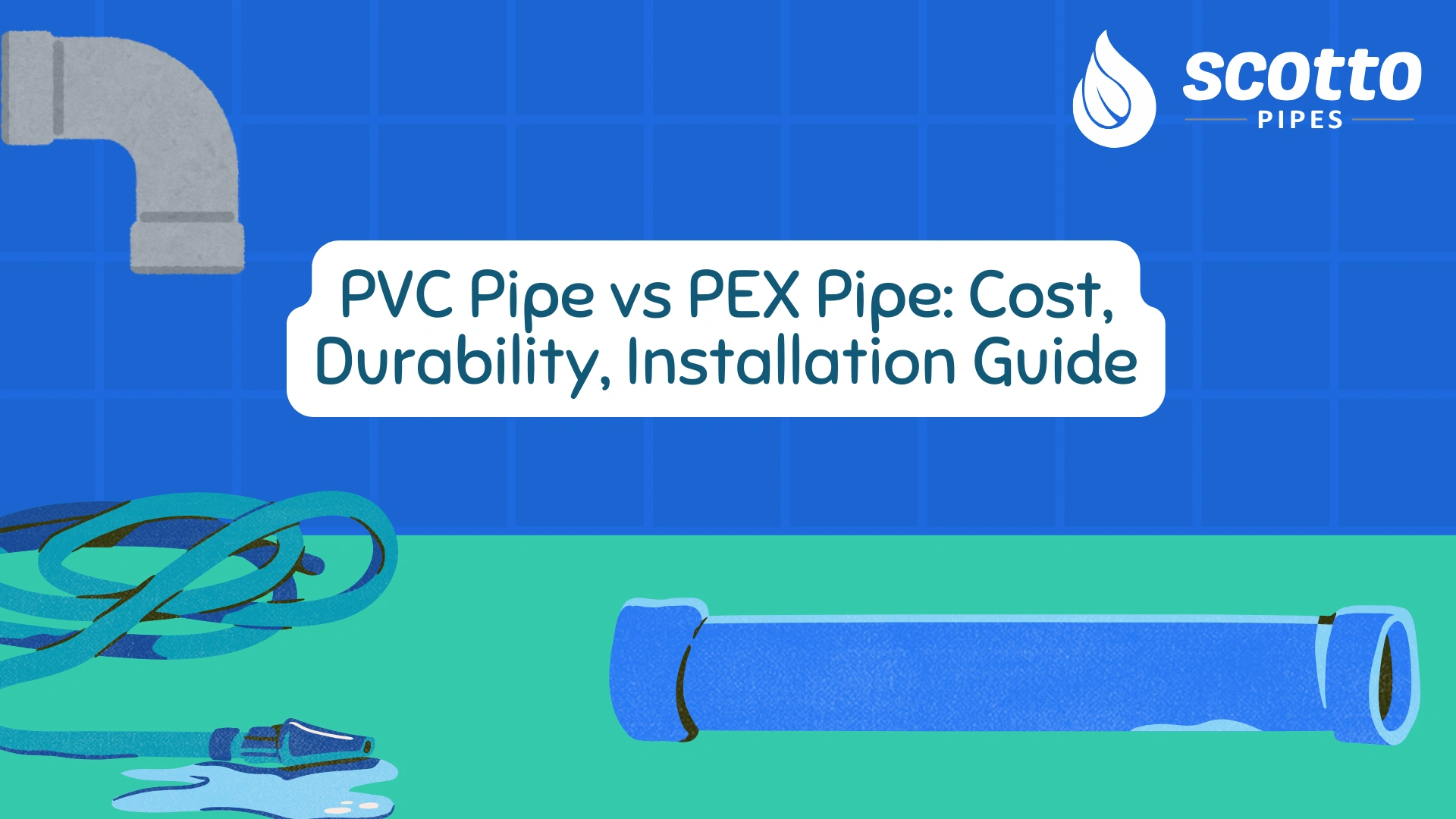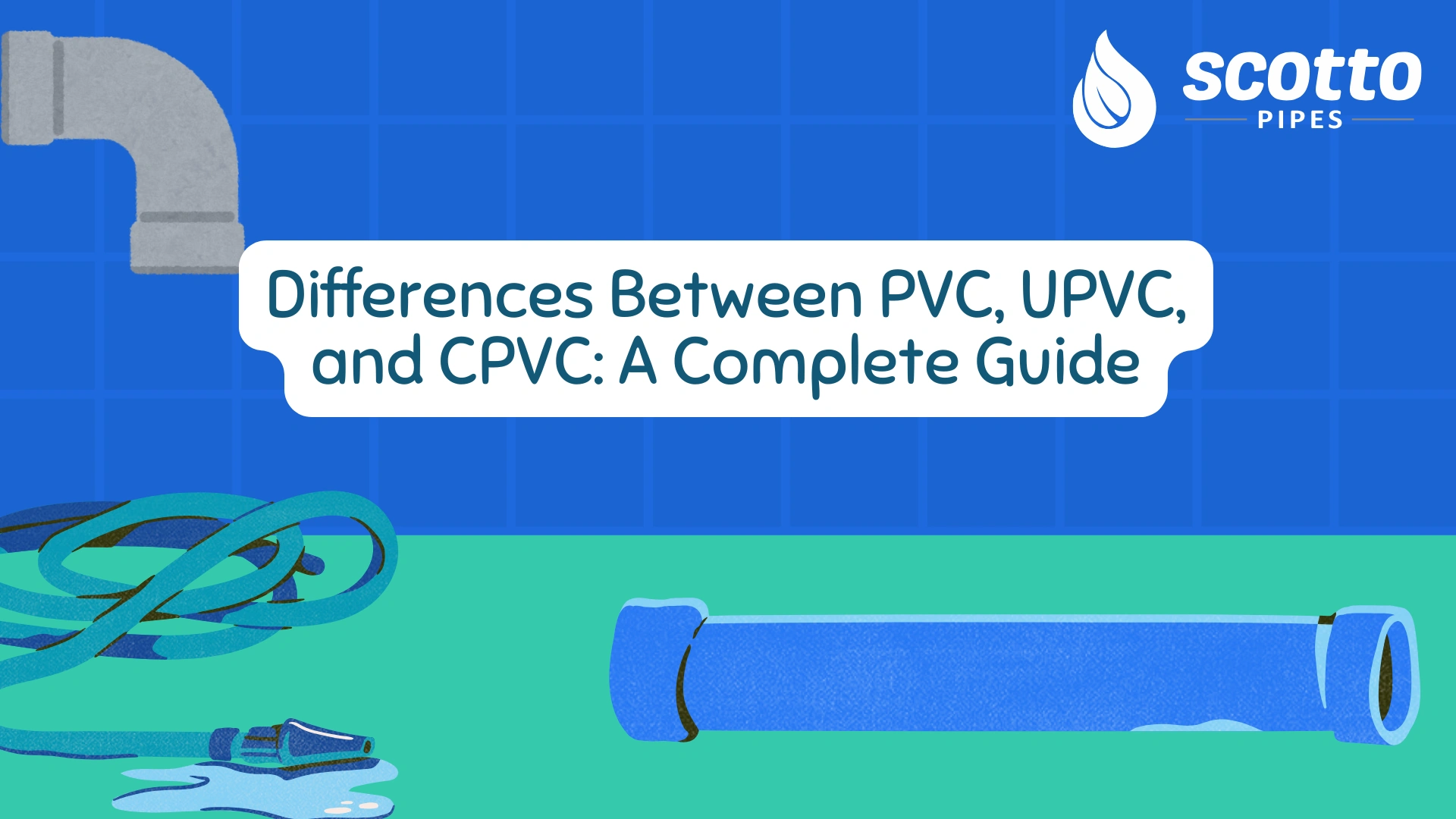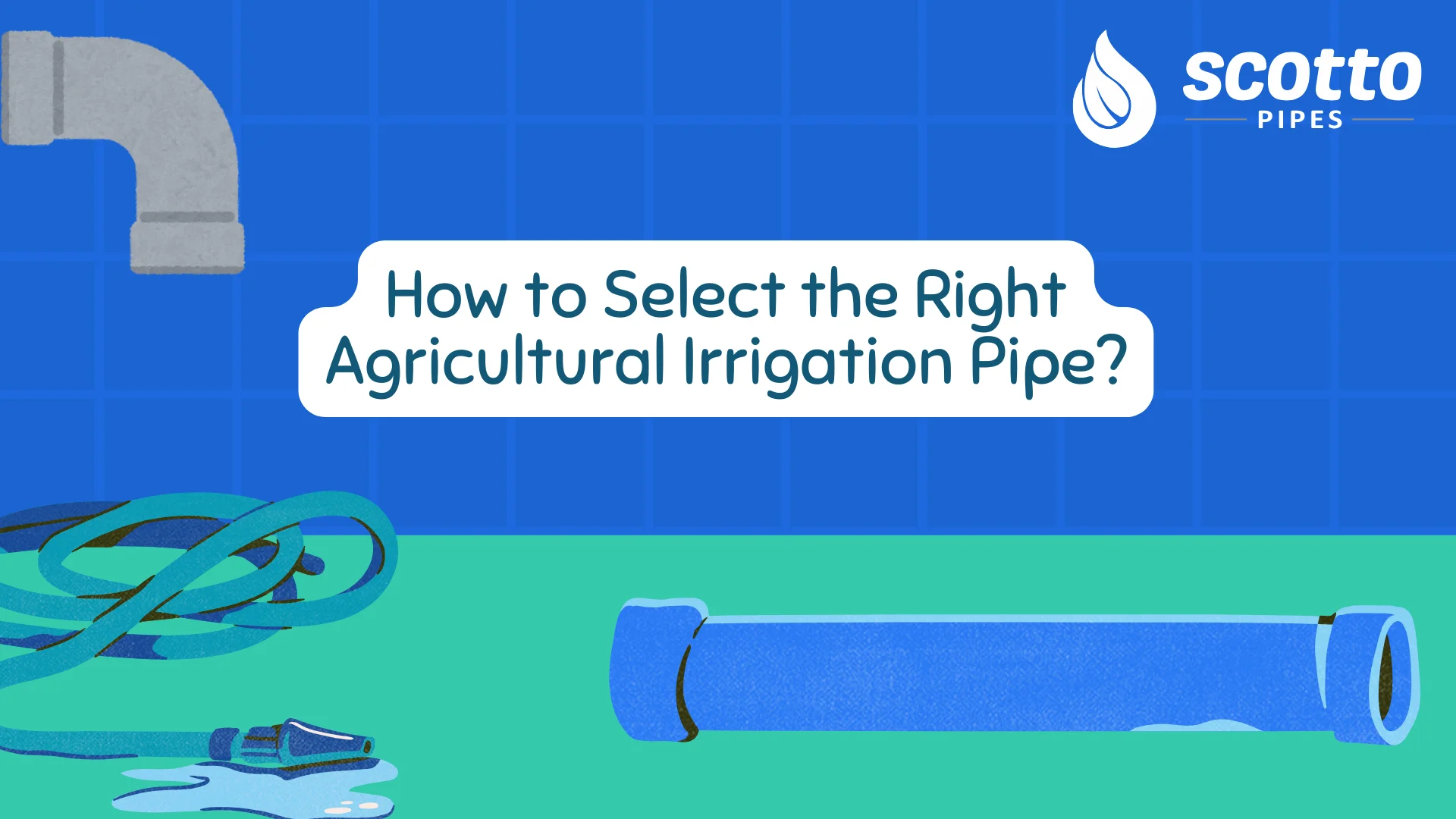
Effective and dependable irrigation is the key to achieving good crop production. The kind of pipe to be used in the distribution of water is one of the most significant determinants in any irrigation system.
When you need to irrigate your fields with either PVC, uPVC, suction, or garden pipes, this is likely to greatly influence the cost-effectiveness of your farm and its productivity in the long term. The use of the right agricultural water pipe will not only make the water distribution more effective (up to 95 per cent) but also cut maintenance expenses (40 per cent). This definitive guide will assist you in getting an insight into the major differences and thus choosing the best pipe as an irrigation system to suit your agricultural needs.
Why Pipe Selection Is Crucial in Agriculture
Choosing the right agricultural irrigation pipe fittings is more than just picking a conduit to carry water; it's a decision that directly affects your operational efficiency and crop yield. Here's why it matters:
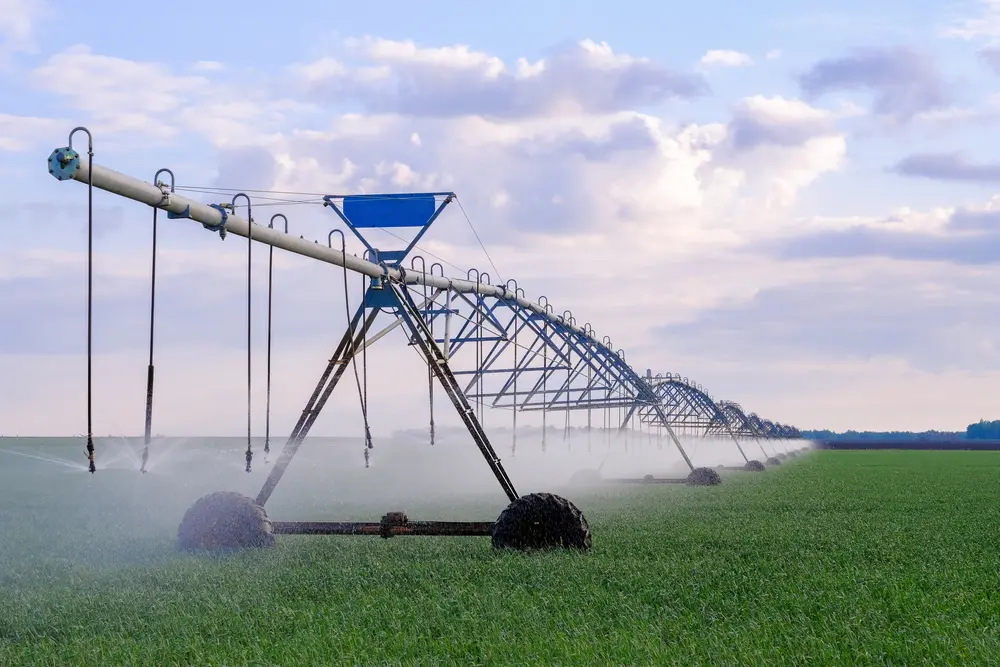
-
Reduces Water Wastage: The right-sized plastic pipe cannot lead to leakages and also allows water to reach the destination where it is required, thereby reducing the wastage.
-
Supports Consistent Water Pressure: Constant pressure provides uniform watering of the crops, which is important in most extensive fields.
-
Improves Longevity of the Irrigation System: With proper material, the possibility of wear, corrosion, or burstiness is lowered and fewer repairs are incurred
-
Optimizes Energy Consumption: Productive pipes minimize energy discharge through a pump, and this is a saving on energy bills.
-
Enhances Overall Productivity: A proper irrigation system means healthier crops, more yields, and profit in the long run.
Understanding Different Types of Agricultural Irrigation Pipes
| Pipe Type | Features & Benefits | Ideal Applications | Limitations |
|---|---|---|---|
| PVC Pipe | Durable, corrosion-resistant, ideal for high-pressure systems | Mainlines, submains, and field distribution networks | May degrade if exposed to UV rays for long periods |
| UPVC Pipe | Rigid, chemical-resistant, non-toxic, thermally stable | Underground water transport, borewell connections | Less flexible; may require more fittings |
| Suction Pipe | Flexible, strong suction capacity, ribbed body for durability | Pumping water from tanks, ponds, or borewells | Not suited for high-pressure delivery or long-distance flow |
| Garden Pipe | Lightweight, flexible, easy to maneuver for daily use | Small gardens, nurseries, terrace farming | Low-pressure tolerance; not recommended for large farms |
Key Factors to Consider Before Choosing an Irrigation Pipe
1. Type of Irrigation System
In case you are working with drip irrigation, you will require PVC fittings or UPVC pipes to put in mainlines and substrates, which will be accompanied by lateral pipes to insert emitters. They have a smooth inner surface which generates the minimum pressure loss.
PVC pipeline systems readily apply in sprinkler irrigation because of their attributes in supporting greater levels of pressure and resisting the shortcomings of being buried or semi-buried.
For pump-driven systems, where water in tanks, rivers, or bore wells are to be taken, suction pipes are necessary to lift the water.
Garden pipes, such as 35m hose pipe or farm irrigation hose, are flexible and allow easy handling with very simple installation required in the example of casual use of watering, such as care in a nursery or home garden.
2. Installation Surface and Terrain
The pipes are composed of PVC and UPVC and they are ideal in underground systems where strength and durability are required. They counteract soil pressure and the reaction of chemicals.
In zones that demand the pipeline to be opened up or moved on a routine basis, flexible PVC pipe, suction pipes and hose flexible garden pipes offer convenience and flexibility.
Suction pipes perform better than rigid materials in hilly or uneven terrain, where flexibility is a key advantage, and where there is ease of routing of the agriculture rain pipe around obstacles.
3. Water Source and Flow Pressure
The best pipes to connect to the high-pressure pumps should be PVC or UPVC pipes, which are capable of withstanding 6 kg/cm2 and even higher pressure.
Suction pipes suit best when there is a need to pump up the water to a low-lying source, which may be a pond or an open well. Their suction and rotational strength facilitate vertical and slanted flowing of water.
The garden pipes are applicable in low-pressure systems, and they must be installed with gravity-fed tanks or small domestic pumps that are small.
4. Climate and Environmental Conditions
In areas which have intense sunlight, select UV-stabilized garden pipe or hose pipe and suction pipes to avoid cracking and deterioration.
uPVC pipeline materials are more thermally resistant and thus suitable in regions with such variations of temperature or where winters are cold.
In the case of coastal or salty environments, polyvinyl chloride pipes and uPVC pipe 4 inch or upvc pipe 6 inch price options shall be used because of their good corrosion resistance.
Understanding Your Irrigation Pipe Options
1. PVC (Polyvinyl Chloride) Pipes for Agriculture
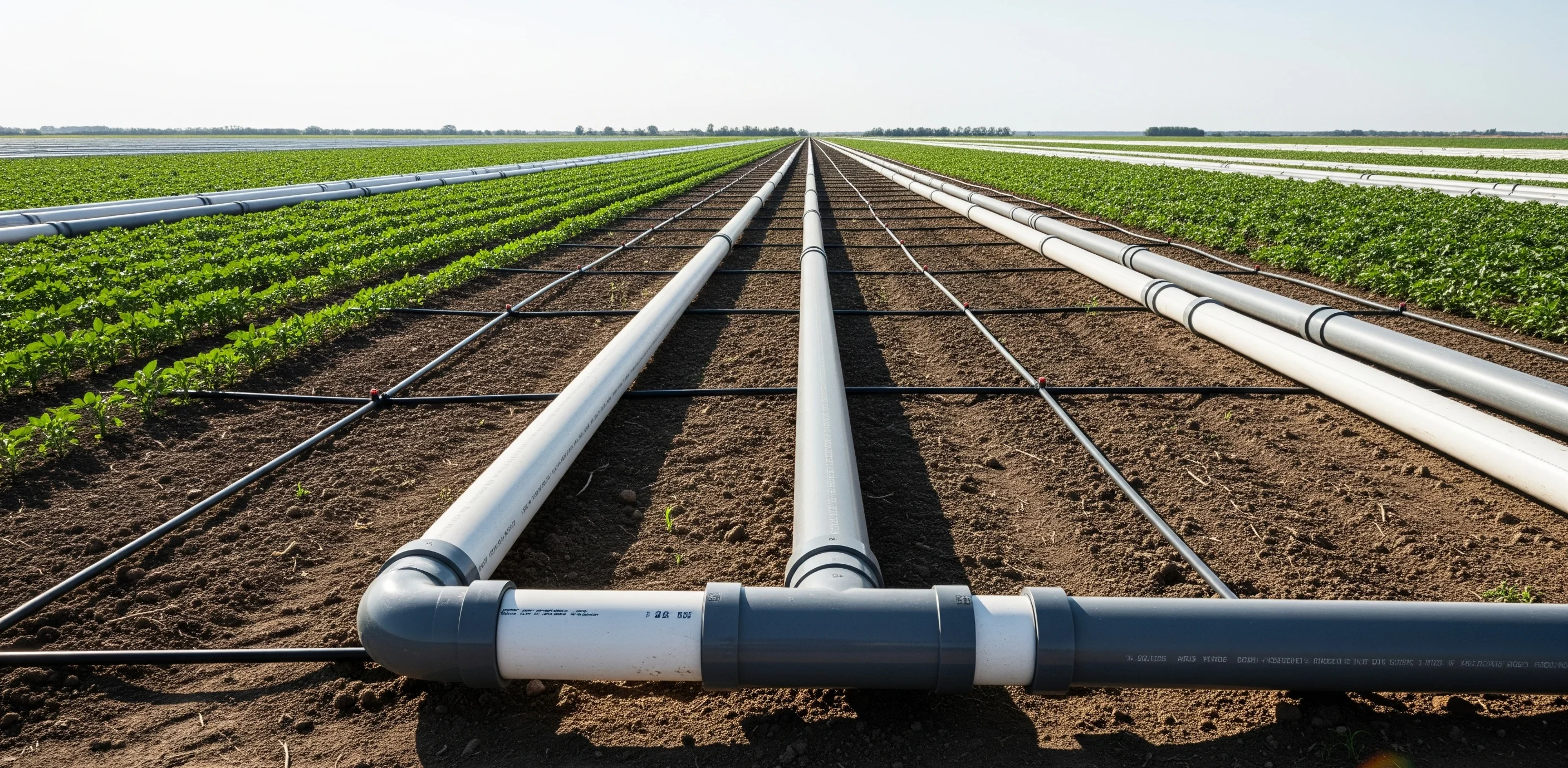
In the agriculture world, one of the most accepted irrigation practices through the use of pipes is PVC pipes; this is because of their durability and ability to withstand pressure and cost in terms of producing them and installing them in the system. They are suited where a large amount of water needs to flow relatively freely, such as in mainlines and sub-mains in drip and sprinkler systems, because of the smooth inner surface, which keeps down water friction losses. PVC is also not affected by rust, corrosion, or most of the chemicals that are applied in fertilizers; therefore, this makes it applicable in the long term in different conditions of soil and water.
The strength of these pipes is that they are light and can therefore be installed easily and they come in various diameters and pressure capacities. Buried underground, they have a long service life ranging between 20 and 50 years. Nonetheless, ordinary PVC pipe may turn brittle under long-term exposure to sunlight and should be covered with UV-resistant types or protected coverings in case of above-ground use. PVC is still a high-performing irrigation pipe because of its low maintenance, dependability, and low cost to the farmer who needs an efficient source of irrigation water.
Key Characteristics:
-
Rigid construction with high pressure tolerance
-
Available in pressure ratings from 125 PSI to 315 PSI
-
Excellent chemical resistance to fertilizers and pesticides
-
Smooth interior surface minimizes friction losses
-
Lifespan of 25-50 years with proper installation
Agricultural Applications:
-
Main distribution lines for drip irrigation systems
-
Underground sprinkler networks
-
High-pressure fertigation systems
-
Permanent buried installations
Popular Sizes: 63mm, 75mm, 90mm, 110mm
2. uPVC Pipes for Farm Irrigation
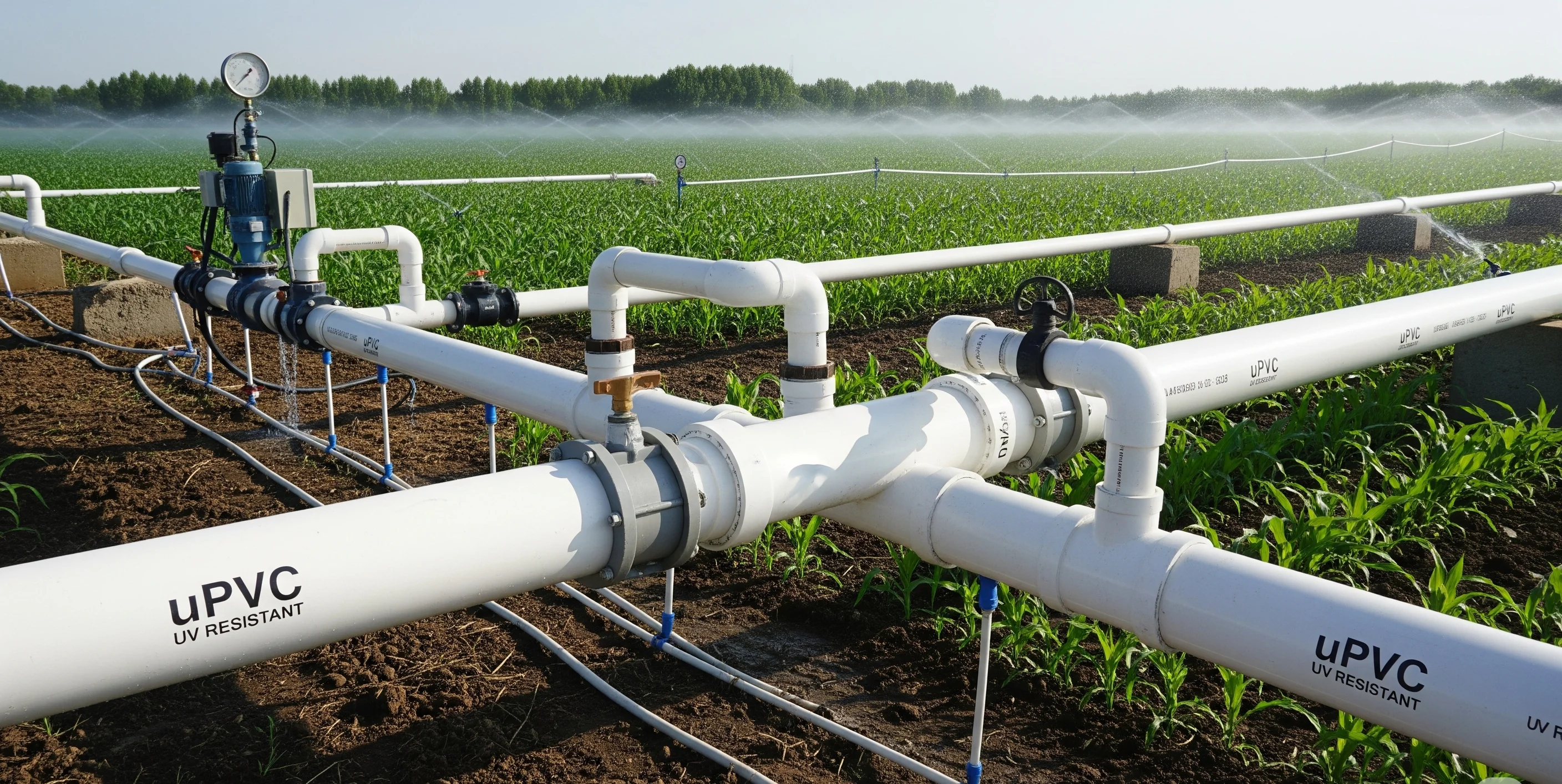
uPVC (Unplasticized Polyvinyl Chloride) pipes are much stronger, more rigid, and chemically resistant than their normal PVC counterparts; therefore, they are much more practical when employed in high-pressure and long industrial agricultural irrigation systems. They are non-hazardous, corrosion resistant and thermostable, hence suitable in underground distribution of water, in borewell connection, and also in those systems where the quality of water is of prime concern, such as in potable water systems in farms.
The inner surface of the pipes made of uPVC is smooth and thus they facilitate the smooth flow of water and they also minimize energy consumption since they do not cause friction. They are available in different pressure ratings and with different diameters, and due to their long lifespan with little maintenance, they are a cost-effective solution in the long term. Nevertheless, they are very rigid and, as such, they need extra fittings to change direction. uPVC is versatile among farmers who want to have a stable and durable pipework, as it can be used in irrigation and supply.
Distinctive Features:
-
Higher impact resistance than standard PVC
-
Better UV resistance for surface installations
-
Superior chemical resistance to agricultural chemicals
-
Maintains structural integrity in temperature extremes
-
Longer lifespan (30-60 years)
Best Agricultural Uses:
-
Exposed irrigation lines in greenhouses
-
Chemical injection systems for fertigation
-
High-stress underground installations
-
Areas with extreme temperature variations
-
Long-term permanent irrigation infrastructure
Advantages over Standard PVC:
-
25% higher impact strength
-
Better performance in freezing conditions
-
Reduced maintenance requirements
-
Enhanced chemical compatibility
Popular Sizes: 32mm to 160mm
3. Suction Pipes for Agricultural Water Systems
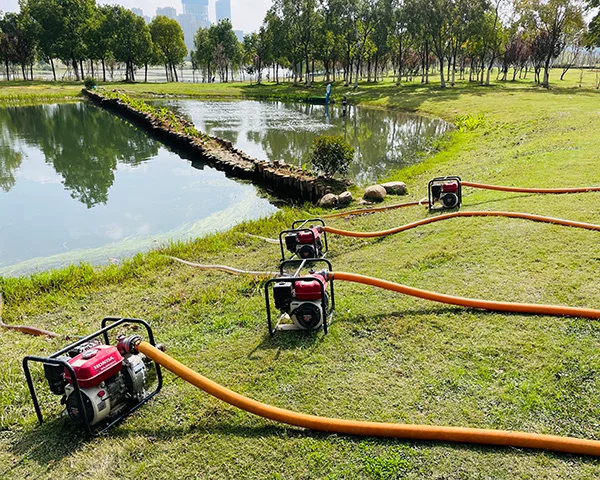
Suction pipes are special in nature to deal with the suction and water having suction-side connection in them, thus needed to draw the water out of sources such as borewells, ponds, rivers, or water tanks. These pipes are usually flexible, strong and have a spiral or a ribbed outer surface wherein the pipes can accommodate a vacuum without deformation. They have a light construction and are portable on the farm because of their portability.
Suction pipes can be obtained in various sizes and lengths to fit various pump capacities. They do not wear out easily, even when subjected to abrasion, chemical, and rough treatment; hence, they are credible outdoors. They are, however, unsuitable in high-pressure discharge and they are mostly applied on the suction side of the irrigation system. Farmers who fish using water, who require a powerful yet versatile and simple pipe to move water, will find suction pipes as a viable and durable remedy.
Technical Specifications:
-
Reinforced construction to prevent collapse under vacuum
-
Typically made from flexible PVC or reinforced rubber
-
Available with spiral wire reinforcement
-
Designed to handle negative pressures up to -25 PSI
-
Smooth bore for maximum flow efficiency
Agricultural Applications:
-
Connecting irrigation pumps to wells or water sources
-
Temporary water transfer systems
-
Farm irrigation hose connections
-
Pond or reservoir water intake lines
-
Mobile irrigation equipment connections
-
Emergency water supply systems
Key Selection Factors:
-
Internal diameter: Must match pump inlet requirements
-
Suction lift capability: Consider vertical distance from water source
-
Flexibility requirements: For temporary or mobile applications
-
Chemical resistance: For fertilizer or chemical injection systems
Popular Sizes: 1” to 4” diameters
4. Garden Pipes for Small-Scale Agriculture
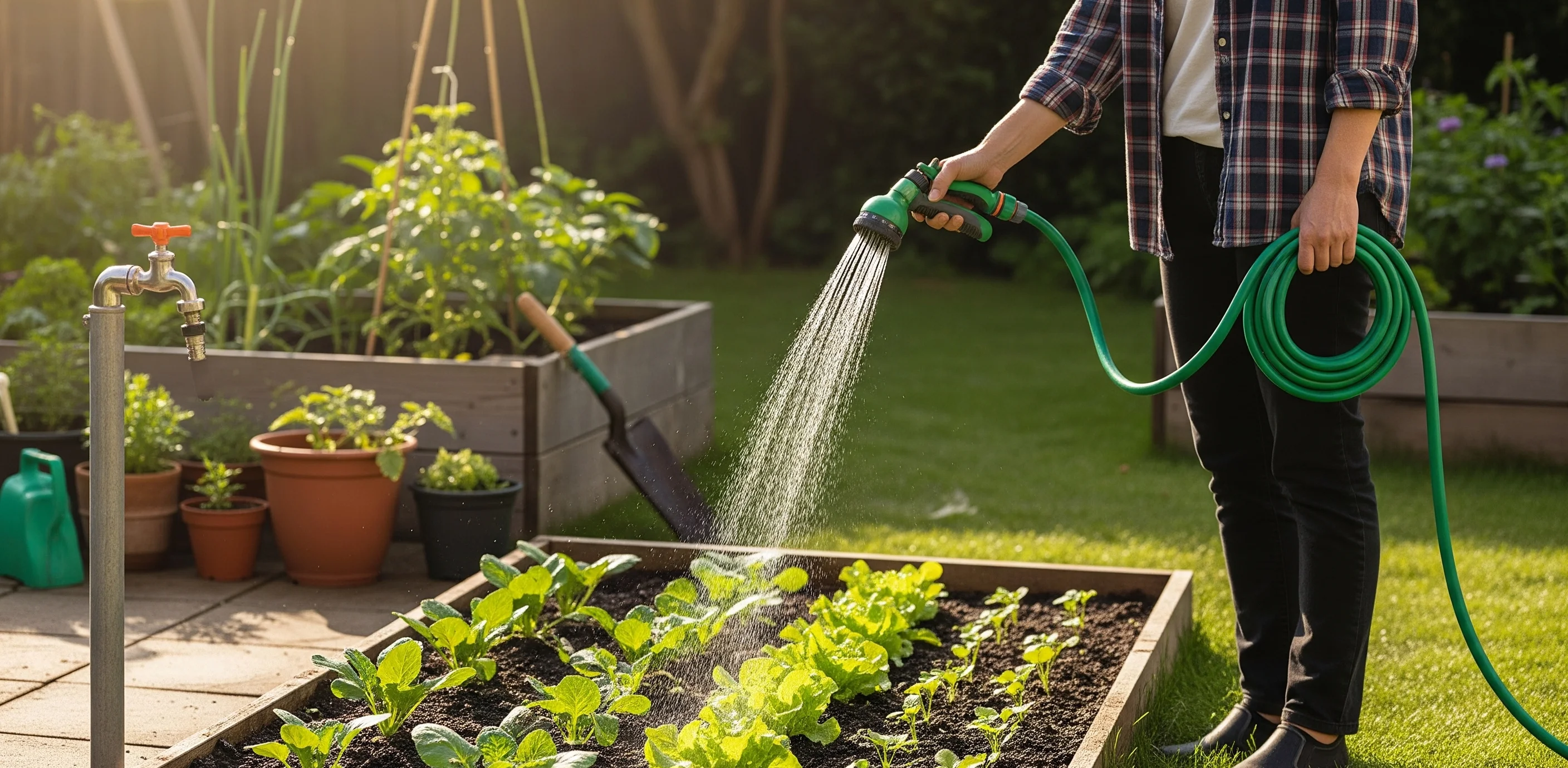
Garden pipes are small, flexible pipes used in small-scale agriculture, home gardens, nurseries and terrace farming. These pipes are made with a low-pressure water-type hose pipe or soft-grade PVC or other similar materials that are also easy to roll, transport, and store. They are usually taking up manual watering, portable irrigation systems, and short-distance pipes to taps or mini pumps.
Garden pipes come in a variety of sizes, wall thicknesses and colors, and are very convenient to use in any daily farm duty such as cleaning, irrigation of seedlings or feeding small irrigation beds. Although they are not designed to cope with high-pressure or large-scale work, UV-stabilized versions are better exposed to the outdoor environment. Garden pipes represent a simple and convenient implementation of basic irrigation requirements by farmers and gardeners trying to resort to a solution that is cost-efficient and flexible.
Types of Garden Pipes:
-
Flexible PVC hoses: For temporary irrigation setups
-
Reinforced rubber hoses: For high-pressure washing and spraying
-
Lay-flat irrigation tubing: For temporary surface irrigation
-
Soaker hoses: For gentle, continuous watering applications
Agricultural Applications:
-
Small-scale vegetable farming
-
Greenhouse watering systems
-
Nursery and seedling irrigation
-
Temporary crop irrigation
-
Specialty crop applications like berry farming
Limitations in Agriculture:
-
Lower pressure ratings (typically 30-100 PSI)
-
Shorter lifespan (3-10 years)
-
Higher maintenance requirements
-
Limited to smaller coverage areas
Popular Sizes: 0.5”, 0.75”, 1”
Selection Criteria for Agricultural Applications
The selection of an irrigation pipe should rely on main conditions like the size of a farm, type of crop, the system of irrigation, as well as cost and long-term costs of maintenance. Based on your needs analysis, you can find a piping system that will provide the best water usage, longevity of the system, and return on investment (ROI). The following are farm-specific recommendations according to the farm size and crop-specific requirements.
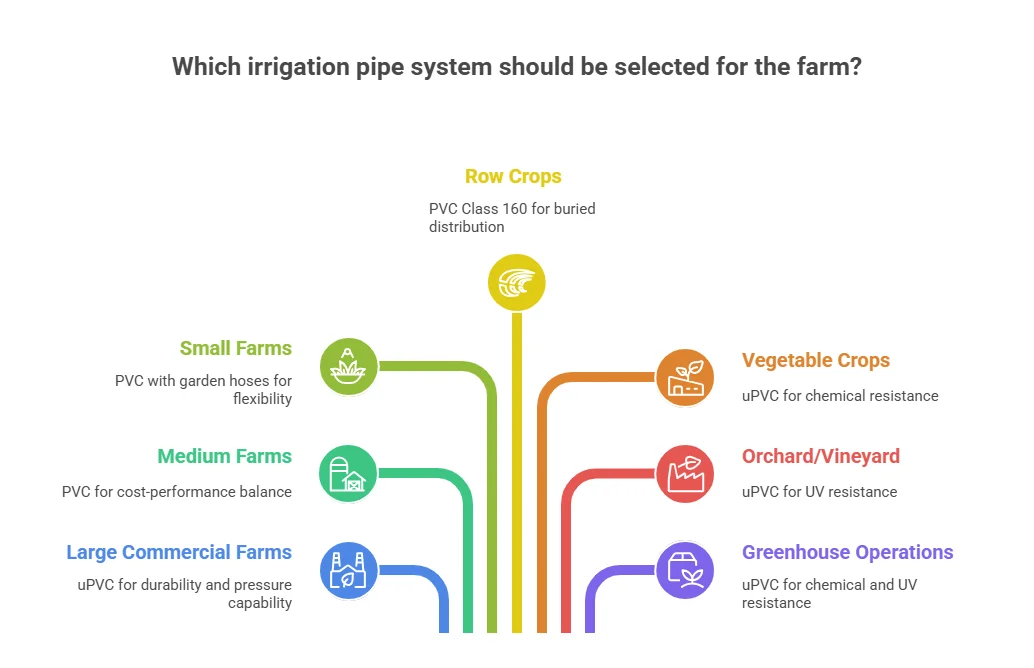
Farm Size and Scale Considerations
1. Large Commercial Farms (100+ acres):
-
Recommended: uPVC for main lines, PVC pipeline for distribution
-
Reasoning: Maximum durability and pressure capability
-
ROI Period: 7-12 years through reduced maintenance
2. Medium Farms (25-100 acres):
-
Recommended: PVC for main system, water pump suction pipe for pump connections
-
Reasoning: Optimal balance of cost and performance
-
ROI Period: 5-8 years
3. Small Farms and Market Gardens (1-25 acres):
-
Recommended: PVC distribution with garden hoses for flexibility
-
Reasoning: Cost-effective with operational flexibility
-
ROI Period: 3-5 years
Crop-Specific Pipe Selection
1. Row Crops (Corn, Soybeans, Wheat):
-
Primary Choice: PVC Class 160 for buried distribution
-
Secondary: uPVC for high-pressure main lines
-
Suction: Required for well pump connections
2. Vegetable Crops (Tomatoes, Peppers, Leafy Greens):
-
Primary Choice: uPVC for chemical resistance
-
Secondary: PVC for standard zones
-
Garden hoses: Flexible connections in greenhouses
3. Orchard and Vineyard Applications:
-
Primary Choice: uPVC for permanent installation
-
Secondary: PVC for zone distribution
-
Considerations: UV resistance crucial for exposed lines
4. Greenhouse Operations:
-
Primary Choice: uPVC for chemical and UV resistance
-
Secondary: Garden hoses for flexible positioning
-
Special needs: Chemical compatibility essential
Water Source and Pump Requirements
1. Deep Well Applications:
- Suction pipe: Essential for pump intake
-
Distribution: PVC or uPVC based on pressure needs
- Consideration: Suction lift limitations
2. Surface Water Sources (Ponds, Rivers):
-
Suction pipe: Required for water intake
-
Filtration: May require larger diameter pipes
-
Seasonal use: Consider freeze protection
3. Pressurized Municipal Water:
-
Distribution: PVC adequate for most applications
-
High pressure: uPVC for systems over 200 PSI
-
Backflow prevention: Required by regulations
Where to Buy Agricultural Irrigation Pipes?
The manufacturing or supply of farm irrigation pipe systems should be made by reputed and certified institutions that are able to ensure performance and value in the long term. Seek providers with the following:
Contact for Agriculture Pipe Needs
-
Consistent product quality with accurate pressure ratings
-
Technical assistance for proper layout planning and installation
-
Long-term warranties and reliable customer support
-
Easy availability of joints, couplings, and accessories for maintenance and expansion
Scotto Pipes is one such reliable brand name in the industry that is involved in manufacturing high-quality PVC pipes that are also exported across various parts of the world and which also provides high-quality pipeline products in the agricultural market. Scotto Pipes offer an extensive spectrum of PVC, uPVC, suction and garden pipes that match various irrigation requirements. Known not only for quality but also for offering competitive PVC pipe price ranges, the company ensures affordability without compromising on performance. Having established a good reputation on products that are long-lasting, timely and technical, Scotto Pipes will make your agricultural irrigation system efficient, scalable, and reliable year after another.
Conclusion: Making the Right Pipe Choice for Sustainable Farming
Choice of irrigation pipe is a key aspect in planning a quality, economical and durable water system in agriculture. When running a large-scale commercial farm or even a small greenhouse, it is highly possible that matching your pipe selection to your business or size of farm, crop type, water source, pressure requirements and the climatic attributes of each could highly increase your level of irrigation and outputs.
Regarding the durability of the uPVC and PVC pipes to the flexibility of the suction and garden hoses, both will have their purposes in agriculture. When you invest in quality and reliable piping systems or solutions with reputable and reliable suppliers and manufacturers such as Scotto Pipes, you not only save water wastage and energy bills but also guarantee the sustainability of your farm business in the long run. As you are going to make the decision, choose wisely, and the irrigation system will pay off with good yields, decreased maintenance, and the greatest ROI.


